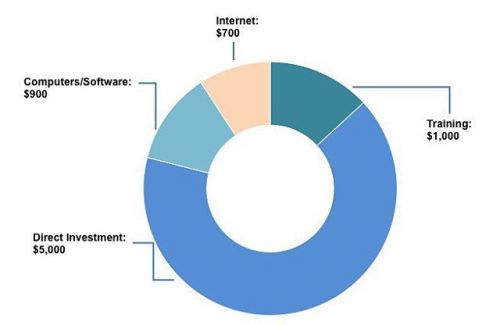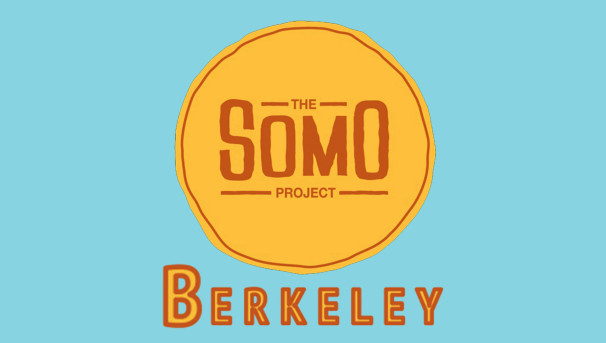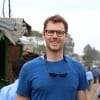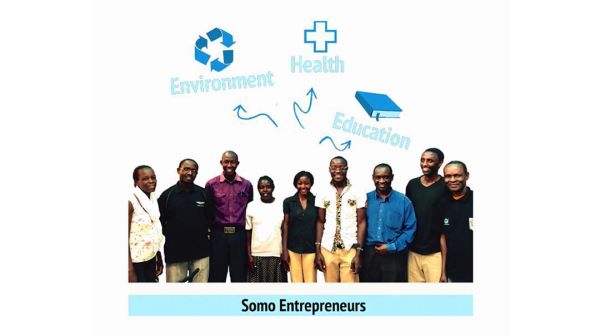Somo Berkeley
This project has ended, but you can still support amazing Berkeley initiatives by visiting give.berkeley.edu. Your continued support of our students, faculty and staff will ensure that Berkeley remains the #1 public university. Go Bears!
Who are we?
Somo Berkeley’s mission is to identify, train, fund and mentor entrepreneurs looking to drive social change by building sustainable enterprises in their own low-income urban communities. Somo Berkeley is affiliated with UC Berkeley’s Blum Center and is the recipient of the first place prize in Conflict and Development from Big Ideas@Berkeley.
The Trend
Today, over 1 billion people live in urban slum settlements around the world, with overcrowding of cities increasing dramatically. Inadequate public services, infrastructure and city management all obstruct economic growth in crowded, low-income urban areas. These densely populated settlements generally do not have basic public services such as education, health care and police protection, and lack infrastructure such as lighting, running water and sewer lines.

Pilot Program
Somo Berkeley is part of The Somo Project, a Bay Area non-profit. The Somo Project’s initial efforts are focused on the Kibera slum of Nairobi, Kenya, one of the most notable slums of Sub-Saharan Africa. From its beginnings as a settlement in the forests outside Nairobi, Kibera has become home to around 250,000 people, crowded into less than one square mile (Map Kibera). The adult population is highly connected, with 78% owning mobile phones (Ondevice Research). Large, concentrated and connected communities exist in Kibera, providing fertile ground to build a significant social enterprise.
Kibera is home to incredible entrepreneurial talent. Walking the various alleyways, one observes brisk economic activity, and innovation and creativity even where little to no infrastructure or support exists. In 2012, the Economist researched the entrepreneurial ecosystem in Kibera and concluded “Kibera may be the most entrepreneurial place on the planet”. We are believers in the talent pool in Kibera. We believe that if you match that with hard work, capital, and long-term partnership, there is huge potential for the growth of social enterprises.
As of September 2015, we have made six investments in innovative entrepreneurs who are building enterprises that can meaningfully impact their communities. While it is too early to tell (we believe results can only be measured 2 to 5 from now), the early progress is extremely promising. From upgrading meal programs at schools to teaching programming languages in tech-savvy youth, our entrepreneurs are pursuing innovative solutions to pressing health, education and environmental initiatives.
What’s next?
Somo Berkeley is looking to launch a new class of entrepreneurs in Nairobi’s informal settlements. One of our focus areas will be to identify high potential women and youth, populations that are often overlooked and for whom business opportunities are scarce. We have begun an outreach program to women’s groups and high schools around Kibera.
What we look for?
Our philosophy is to invest in and provide the necessary training and tools for entrepreneurs who are looking to change their communities from within. By investing in the right people in search of opportunity and change, The Somo Project can help bring opportunity and long-term stability to urban slum areas.
We work to create this stability through training, mentorship and capital, to help entrepreneurs find a path toward sustainability for their enterprises. We take a long-term investment-focused approach; meaning we are rigorous in both identifying and evaluating areas of investment, entrepreneurs, and deployment of capital.
The Somo Project has four fundamental criteria for evaluating business plans:
1. Socially focused. We invest in ideas that focus on education, health and the environment. Somo defines socially focused as more than just the creation of jobs.
2. Differentiated product. We are looking for goods or services that are innovative or new to the community — ideas that do something new or better or more affordably.
3. Scalable idea. Our target businesses start small to prove the model, develop a foundation that can be expanded as the market grows, and scale to reach significant populations.
4. Self-sustainable. While our businesses need capital to launch, they do not require regular infusions of capital to work long term. We are looking for businesses that generate enough revenue to organically fund both operating expenses and growth.
The Funding. Where is your money going?
Somo Berkeley is committed to the 100% model, meaning 100% of donated capital goes directly to training, funding and investing in entrepreneurs. We cover our operating expenses from private donors. We keep it simple. You’ll know exactly how we invest your capital.

Contact us: ameliahphillips@berkeley.edu
$25
Facebook shoutout!
Message of appreciation on Facebook!
$50
Support business training!
Pay for one business training class, you can pick a Ted Talk to show entrepreneurs during training (+ above)
$100
Banner shoutout!
Printed name on a banner inside of facility in Kibera, Nairobi (+ all of the above)
$250
Entrepreneur update!
Online entrepreneur postcard with a picture of an entrepreneur and a description of their business (+ all of the above)
$500
Somo Berkeley poster
A pdf copy of a Somo Berkeley poster (+ all of the above)
$1,000
Meet an entrepreneur
A Skype call introduction to a Somo entrepreneur
$5,000
Come to Nairobi!
You are invited to come to Nairobi to meet with Somo entrepreneurs and Nairobi's tech community (expenses not included) (+ all of the above)








